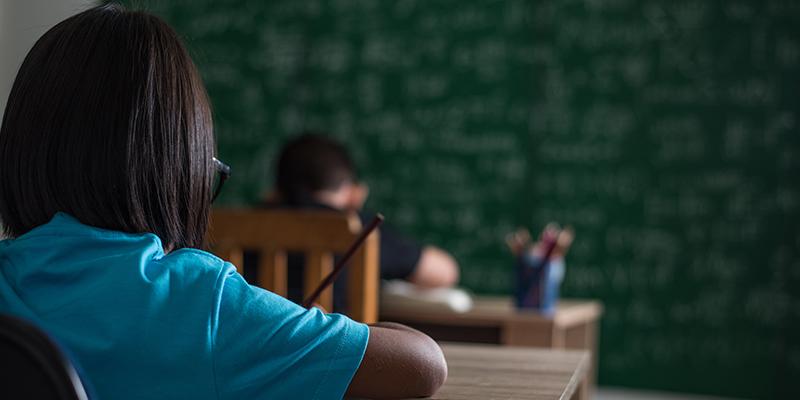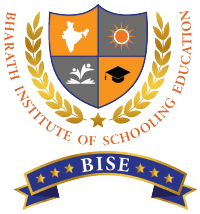As students progress through their education, it is important that they not only focus on academic subjects but also develop essential skills that will help them succeed in life. While academic success is important, having a strong set of skills will help students in both their personal and professional lives.
In this article, we will discuss the 8 essential skills that students need to learn in school.
List of 8 Essential Skills for Students to Learn in School

Skills that need to be included in Schools play a critical role in preparing students for success in the future.
While academic skills are essential, there are other skills that need to be included in schools for students.
Here you can learn about the 8 types of essential Skills for Students to Learn in School:
Communication Skills

Communication skills are top on the list and crucial for a student to develop. These skills include listening, speaking, writing, and nonverbal communication. Effective communication helps students to express themselves clearly and to understand others’ perspectives. Students who have strong communication skills are better able to collaborate. They can easily build relationships, and succeed in their personal and professional lives.
To develop communication skills, students can practice active listening, engage in public speaking, and practice writing in different formats. Teachers can encourage classroom discussions and provide opportunities for public speaking. They can also offer feedback on writing assignments..
Critical Thinking Skills

Critical thinking skills are essential for a student to develop because they enable students to analyze information and make informed decisions. Students who have strong critical thinking skills are able to evaluate arguments, solve problems, and make decisions based on evidence.
To develop critical thinking skills, students can practice analyzing arguments, evaluating evidence, and considering different perspectives. Teachers can provide opportunities for students to engage in debates, discuss complex issues, and analyze different sources of information.
Research Skills
Research skills need to be included in schools for students to develop because they help students to gather information, evaluate sources, and make informed decisions. These skills include conducting research, analyzing data, and presenting findings.
To develop research skills, students can practice conducting research using different sources, analyzing data, and presenting their findings in different formats. Teachers can provide opportunities for students to conduct research projects, analyze data, and present their findings to the class.
Time Management Skills

Time management skills are one of the essential types for students to develop because they help students to balance their academic work, extracurricular activities, and personal life. Students who have strong time management skills are able to prioritize their tasks, meet deadlines, and avoid procrastination.
To develop time management skills, students can practice creating schedules, setting goals, and prioritizing tasks. Teachers can provide guidance on how to manage time effectively, offer strategies for setting goals and priorities, and provide feedback on time management.
Collaboration Skills
Collaboration skills are essential types for students to develop because they help students to work effectively with others, build relationships, and achieve common goals. These skills include teamwork, leadership, and conflict resolution.
To develop collaboration skills, students can participate in group projects, engage in team-building activities, and practice effective communication. Teachers can provide opportunities for students to work in groups, facilitate discussions on effective teamwork, and provide feedback on group projects.
Adaptability Skills
Adaptability skills are important types for students to develop because they enable students to adjust to changes and new situations. These skills include flexibility, problem-solving, and creativity.
To develop adaptability skills, students can practice problem-solving in different contexts, engage in creative activities, and take on new challenges. Teachers can provide opportunities for students to engage in hands-on learning, offer different approaches to problem-solving, and encourage risk-taking.
Creativity Skills
Creativity skills need to be included in schools for students to develop because they enable students to think outside the box and come up with innovative solutions. These skills include brainstorming, ideation, and experimentation.
To develop Creativity skills, students can engage in creative activities, brainstorm new ideas, and explore different perspectives. Teachers can provide opportunities for students to engage in creative projects, offer challenges that require innovative thinking, and encourage experimentation.
Emotional Intelligence
Emotional intelligence is one of the important skills in the list for a student to develop because it enables students to understand and manage their own emotions, as well as the emotions of others. These skills include self-awareness, empathy, and self-regulation.
To develop emotional intelligence, students can practice self-reflection, engage in activities that promote empathy, and practice self-regulation techniques. Teachers can provide opportunities for students to engage in discussions on emotions, facilitate activities that promote empathy, and provide feedback on self-regulation.
Conclusion
We have covered a detailed guide on the list of 8 essential skills that a student needs to learn in school. While academic success is important, it is equally important for students to develop essential skills that will help them succeed in their personal and professional lives. Communication skills, critical thinking skills, research skills, time management skills, collaboration skills, adaptability skills, creativity skills, and emotional intelligence are all essential skills that students should learn in school. Teachers can play an important role in helping students to develop these skills by providing opportunities for practice, guidance, and feedback.
Frequently asked questions
Essential skills are important for students because they help students to succeed in their personal and professional lives.
Some examples of essential skills for students include communication skills, critical thinking skills, research skills, time management skills, collaboration skills, adaptability skills, creativity skills, and emotional intelligence.
Teachers can help students to develop essential skills by providing opportunities for practice, guidance, and feedback.
No, essential skills are important for both academic and personal/professional success.
Yes, essential skills can be learned outside of school through various experiences and opportunities for practice. However, the school provides a structured environment for students to learn and develop these skills.
